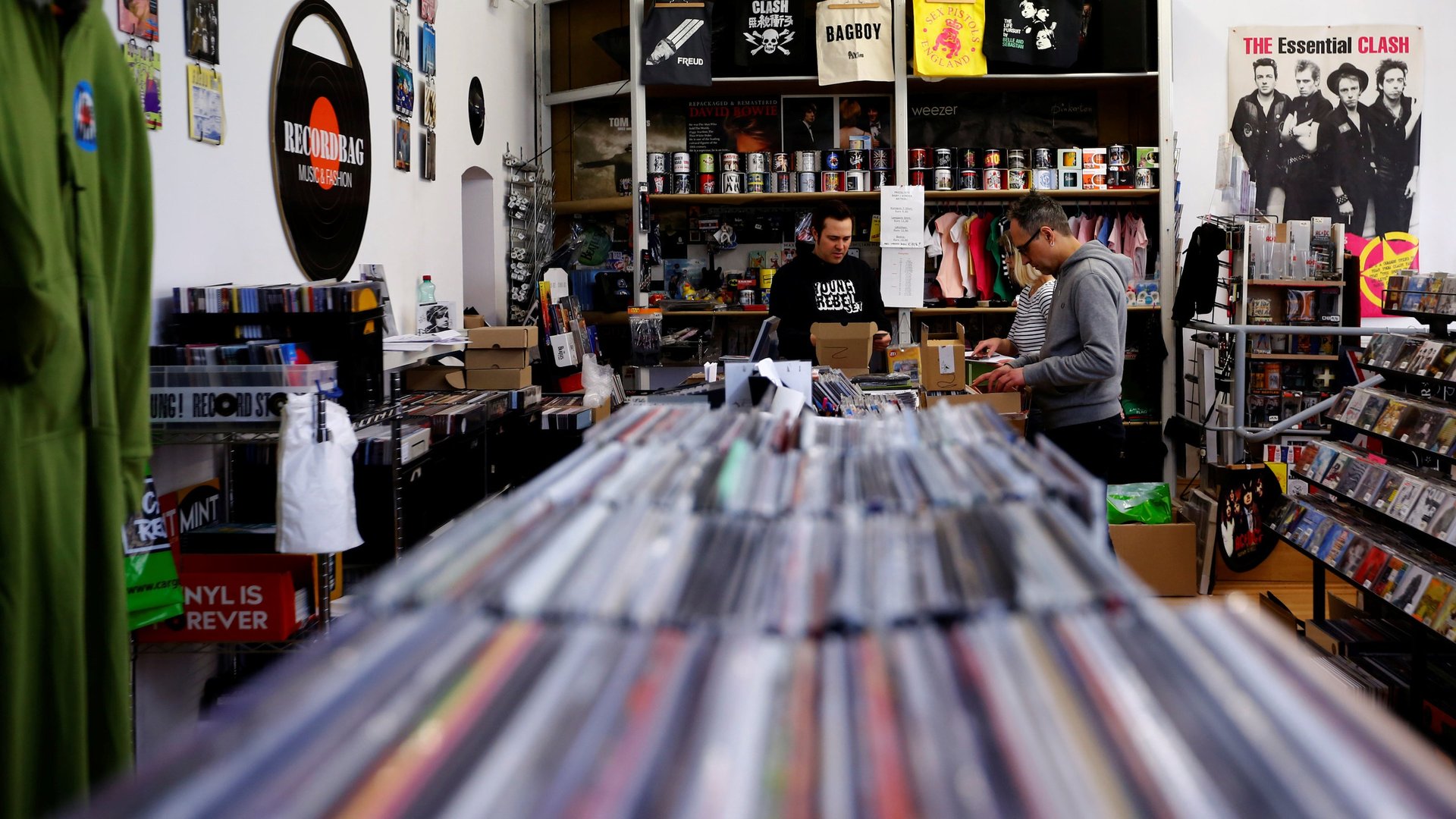Vinyl is the new Netflix (but the old DVDs-on-demand Netflix)
Vinyl records won’t stop breaking records. Physical LPs—in spite of all the times they’ve been predicted to die since they were first popularized in the 1950s—have more than survived the music-streaming boom, so much that their sales are actually helping bolster the troubled music business at large.


Vinyl records won’t stop breaking records. Physical LPs—in spite of all the times they’ve been predicted to die since they were first popularized in the 1950s—have more than survived the music-streaming boom, so much that their sales are actually helping bolster the troubled music business at large.
Still, the fact remains that collecting records in the modern day can be cumbersome, expensive, and difficult to justify when considering the existence of cheap, buffet-style digital subscription services like Spotify and Apple Music. And so there is a natural solution: Vinyl, too, is going subscription. Celebrity artists like Elton John and Quincy Jones in recent months have thrown their weight behind subscription-vinyl services, of which there are now more than a dozen.
The latest such venture is Henry Rollins’s The Sound of Vinyl, a service that suggests specific records to people based on their music tastes. In a Forbes interview this week, the punk musician gave the most convincing reason yet for vinyl to be distributed in such a way—which is that it’s the last remaining place to get an old-school record store experience. Says Rollins:
With those kind of wizened, old Woody Herman experts who would kind of scold you as you bought a record, like, ‘You’re buying that one but he sold out on that record,’ where I’d go, ‘Okay, well tell me the Stan Kenton record I really need’. Then, they’d come running out and throw a record into your hand and grab you by the ear and drag you back to the counter and lecture you for another 20 minutes. We’re trying to do that with the The Sound Of Vinyl website.
Rollins drew a comparison between vinyl-curation sites and Netflix in its early days, which would ship people DVDs based on their previous film interests. But while Netflix was mimicking the experience of a utilitarian movie-rental store, vinyl subscription/recommendation services are trying to recreate record stores—spaces that carry far more nostalgic value. And that fervid sense of nostalgia, which is sweeping through many industries these days both inside and outside of the entertainment sector, is a lucrative thing indeed. Vinyl curation is not so different, either, to a physical version of the algorithmically powered playlists that so many people rely on nowadays.
Then, of course, there’s the argument for vinyl records themselves. “It sounds better,” Rollins says. “That’s not up for debate.”